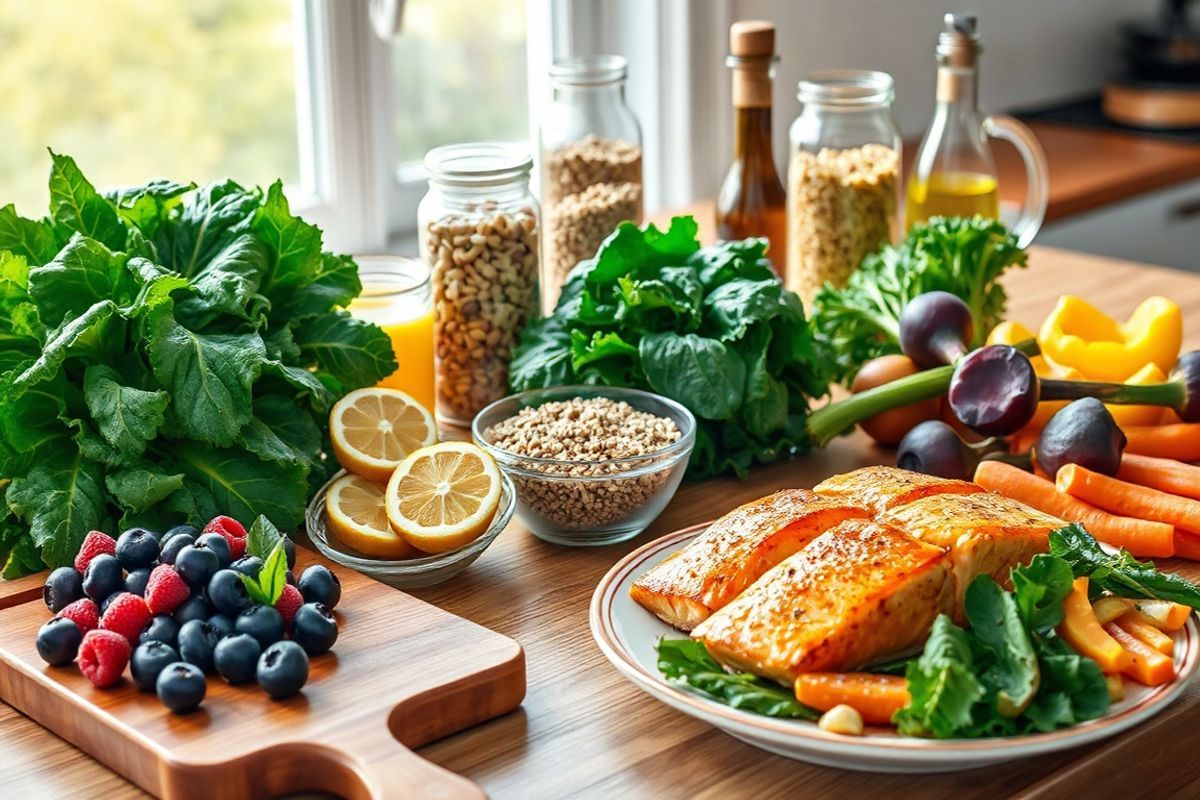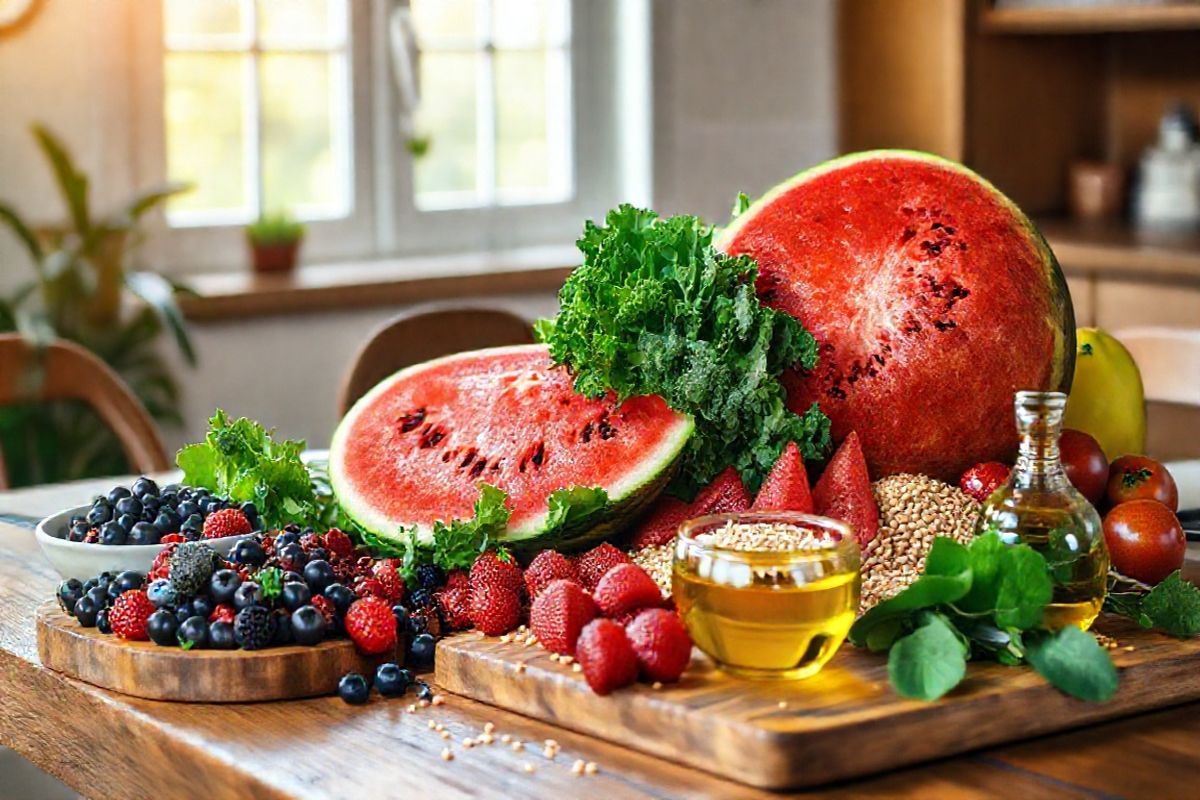Table of Contents
Understanding Iga nephropathy: The Role of Diet in Kidney Health

iga nephropathy (IgAN) is recognized as the most prevalent form of primary glomerulonephritis globally. It is characterized by the deposition of immunoglobulin A (IgA) in the glomeruli, which leads to inflammation and potential kidney damage. The progression of IgAN varies widely among individuals, influenced by genetic, environmental, and lifestyle factors. Notably, the significance of diet in managing IgAN has garnered increasing attention. Research indicates that a healthy diet is essential not only for the prevention of malnutrition but also for the mitigation of chronic diseases, including kidney-related conditions (World Health Organization, 2023).
Dietary modifications can play a crucial role in managing the symptoms and progression of IgAN. A balanced diet rich in nutrients can help regulate blood pressure, reduce proteinuria, and improve kidney function. Understanding the specific dietary needs associated with IgAN is vital for patients seeking to enhance their kidney health and overall well-being.
Core Dietary Principles for Effective IgAN Management
Managing IgAN through dietary changes involves adhering to several core principles. A diversified, balanced diet can help prevent malnutrition and reduce the risk of further kidney damage. Here are some fundamental dietary guidelines for individuals with IgAN:
-
Emphasize Whole Foods: Prioritize the intake of whole foods, including fruits, vegetables, whole grains, and lean proteins. These foods provide essential vitamins and minerals that support overall health and kidney function. Aiming for at least 400 grams (about five portions) of fruits and vegetables daily is recommended (World Health Organization, 2023).
-
Limit Sodium Intake: High sodium consumption can lead to increased blood pressure and further kidney damage. The recommended sodium intake is less than 2,300 mg per day, which is roughly equivalent to one teaspoon of salt. Reducing processed and packaged foods, which are often high in sodium, is essential for managing kidney health (Kidney.org, 2023).
-
Control Protein Consumption: While protein is crucial for overall health, excessive protein intake can strain the kidneys. It’s important to assess individual protein needs with a healthcare provider, as some patients may benefit from a lower-protein diet to reduce the workload on the kidneys.
-
Focus on Healthy Fats: Unsaturated fats, found in sources such as fish, avocados, and nuts, are preferable to saturated and trans fats. The intake of total fat should be less than 30% of total energy intake, with saturated fats limited to less than 10% (World Health Organization, 2023).
-
Minimize Added Sugars: Limiting free sugars to less than 10% of total energy intake can help manage weight and reduce the risk of cardiovascular diseases. Ideally, reducing this to less than 5% can provide additional health benefits (World Health Organization, 2023).
Nutrient-Rich Foods to Incorporate into Your Daily Diet
Incorporating nutrient-rich foods into your diet is essential for managing IgAN and enhancing kidney health. Here are some recommended food categories:
Fruits and Vegetables
Fruits and vegetables are rich in antioxidants, vitamins, and dietary fibers that can help reduce inflammation and improve kidney function. Aim to include a variety of colors and types in your diet. Some excellent choices include:
- Leafy Greens: Spinach, kale, and Swiss chard are low in potassium and high in vitamins A and K.
- Berries: Blueberries, strawberries, and raspberries are rich in antioxidants and can help reduce oxidative stress.
- Citrus Fruits: Oranges and lemons provide vitamin C and can help improve immune function.
Whole Grains
Whole grains are an excellent source of dietary fiber and can help regulate blood sugar levels. Some healthy options include:
- Brown Rice: A good source of B vitamins and fiber.
- Oats: Great for heart health and can help lower cholesterol levels.
- Quinoa: A complete protein that is gluten-free and rich in essential amino acids.
Lean Proteins
Choosing lean protein sources can help manage kidney health while providing essential nutrients. Consider:
- Fish: Fatty fish like salmon and mackerel are high in omega-3 fatty acids, which can reduce inflammation.
- Poultry: Skinless chicken and turkey are lower in saturated fat compared to red meats.
- Legumes: Beans and lentils are excellent plant-based protein sources and provide fiber.
Healthy Fats
Incorporating healthy fats can help support heart health and reduce inflammation. Recommended sources include:
- Olive Oil: Rich in monounsaturated fats and antioxidants.
- Nuts and Seeds: Almonds, walnuts, and chia seeds provide healthy fats and fiber.
Foods to Avoid: Protecting Your Kidneys from Harmful Ingredients

While focusing on healthy foods, it is equally important to avoid certain foods that can negatively impact kidney health. Here are some categories of foods to limit or avoid:
Processed Foods
Processed foods often contain high levels of sodium, unhealthy fats, and added sugars. These include:
- Frozen Meals: Often high in sodium and preservatives.
- Canned Soups: Many varieties are loaded with salt.
- Snack Foods: Chips, crackers, and other packaged snacks typically contain unhealthy fats and sodium.
High-Sodium Foods
Foods high in sodium can exacerbate hypertension and kidney strain. Avoid:
- Salty Snacks: Chips, pretzels, and popcorn with added salt.
- Cured Meats: Bacon, ham, and deli meats are often high in sodium.
- Soy Sauce and Other Condiments: These can contribute significant sodium levels to meals.
Sugary Beverages
Beverages high in added sugars can lead to weight gain and increased blood pressure. Limit:
- Sodas and Energy Drinks: High in calories and free sugars.
- Fruit Juices: Even 100% fruit juices can be high in sugar; opt for whole fruit instead.
Meal Planning Strategies to Support Kidney Function and Overall Wellness
Effective meal planning is crucial for individuals managing IgAN. Here are some strategies to consider:
Create Balanced Meals
Aim for meals that include a source of protein, healthy fats, and plenty of fruits and vegetables. For example, a balanced lunch could consist of a grilled chicken salad topped with a variety of colorful vegetables, drizzled with olive oil and lemon juice.
Plan for Snacks
Healthy snacks can help maintain energy levels and prevent unhealthy choices. Consider:
- Greek Yogurt with Berries: A protein-rich snack with antioxidants.
- Veggie Sticks with Hummus: Provides fiber and healthy fats.
- Nuts: A small handful of almonds or walnuts can be satisfying and nutritious.
Stay Hydrated
Proper hydration is essential for kidney health. Aim to drink adequate fluids throughout the day, primarily water. Limit intake of high-sugar and caffeinated beverages.
Monitor Portion Sizes
Paying attention to portion sizes can help manage calorie intake and prevent overeating. Using smaller plates and bowls can help control portions visually.
FAQs
What is IgA Nephropathy?
IgA Nephropathy is a kidney disorder characterized by the accumulation of IgA antibodies in the kidney’s glomeruli, which can lead to inflammation and progressive damage.
How can diet affect IgA Nephropathy?
A balanced diet can help manage symptoms, reduce proteinuria, and support overall kidney function, while an unhealthy diet can exacerbate kidney damage.
What should I avoid if I have IgA Nephropathy?
Avoid high-sodium foods, processed foods, sugary beverages, and excessive protein intake to protect kidney health.
Are there specific foods beneficial for IgA Nephropathy?
Yes, incorporating fruits, vegetables, whole grains, lean proteins, and healthy fats can be beneficial in managing IgAN.
How can I start meal planning for IgA Nephropathy?
Begin by creating balanced meals that include a variety of food groups, plan healthy snacks, and monitor portion sizes to support kidney health.
References
- World Health Organization. (2023). Healthy diet. Retrieved from https://www.who.int/news-room/fact-sheets/detail/healthy-diet
- Kidney.org. (2023). IgA nephropathy. Retrieved from https://www.kidney.org/kidney-topics/iga-nephropathy











